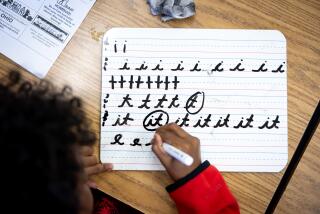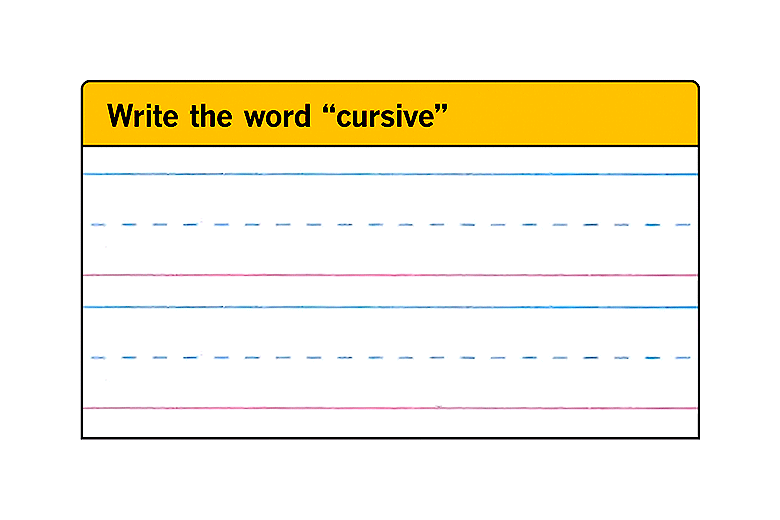Discover the Writer Living in Each Child : Education: Forget punctuation. Ignore spelling. The key is storytelling, a new book says.
- Share via
Many adults recall that learning how to write was a painful experience. That’s because they were taught the wrong way, according to the authors of “Kids Have All the Write Stuff.”
Writing isn’t about spelling and grammar. And it’s not just for a few talented kids. It’s about being creative and self-confident, something every child can be, say authors Sharon Edwards and Robert Maloy.
Their new book tries to help parents and teachers understand this and inspire kids--from 2 to 9--to scribble away, no matter what comes out on paper.
“We tell kids that if they have ideas in their head, they can write,” Edwards said during a recent interview.
“Until we redefine writing--moving it away from spelling, punctuation and composition books--everyone will have a problem with it,” she said. “Writing is really an idea exchange.”
One thing that gets kids going is a “writing box,” the authors say in their book. It’s a plastic sack, a basket or even a shoe box that a child can call his or her own. It is filled with things like notebooks, fun-shaped erasers, tape, chalk and pencils. No dictionaries, no practice pages.
Since 1987, several hundred children in Edwards’ kindergarten, first- and second-grade classes in Amherst, Mass., and others from nearby inner-city areas were given writing boxes, along with handbooks for parents.
The materials sparked such an interest in writing that Edwards won the 1990 Good Neighbor Award from the National Council of Teachers of English and the State Farm Insurance Companies.
What the kids wrote ranged from riddles to dinner menus to grocery lists. There were squiggles and circles and lines. They also got input from adults. Maybe it was a shared journal between mother and child about a recent trip. Or a grandfather’s efforts not to dismiss a 2-year-old’s scribbling.
“Eventually, the pull of the box doesn’t keep them going. That’s why adult encouragement is important,” said Edwards, who for 17 years has been a demonstration teacher at Mark’s Meadow Laboratory School, a neighborhood school run jointly by the local school system and the University of Massachusetts, Amherst. Maloy, who also teaches at the Amherst campus, is the director of a nationally recognized tutoring program called the TEAMS project.
“It’s not a big job. It’s not about teaching or sitting down with a child and correcting punctuation,” said Edwards. “It’s about telling stories and making up poems--about enjoying something.”
Edwards and Maloy also tell parents not to focus on spelling. What youngsters need first is to be assured they can convey their own ideas in their own ways, they said.
The book includes a family self-study survey, a guide for teachers and a 30-page annotated listing of children’s books to inspire kids to write; they’re organized under topics like personal experience stories, rhymes and letters.
More to Read
Sign up for our Book Club newsletter
Get the latest news, events and more from the Los Angeles Times Book Club, and help us get L.A. reading and talking.
You may occasionally receive promotional content from the Los Angeles Times.










